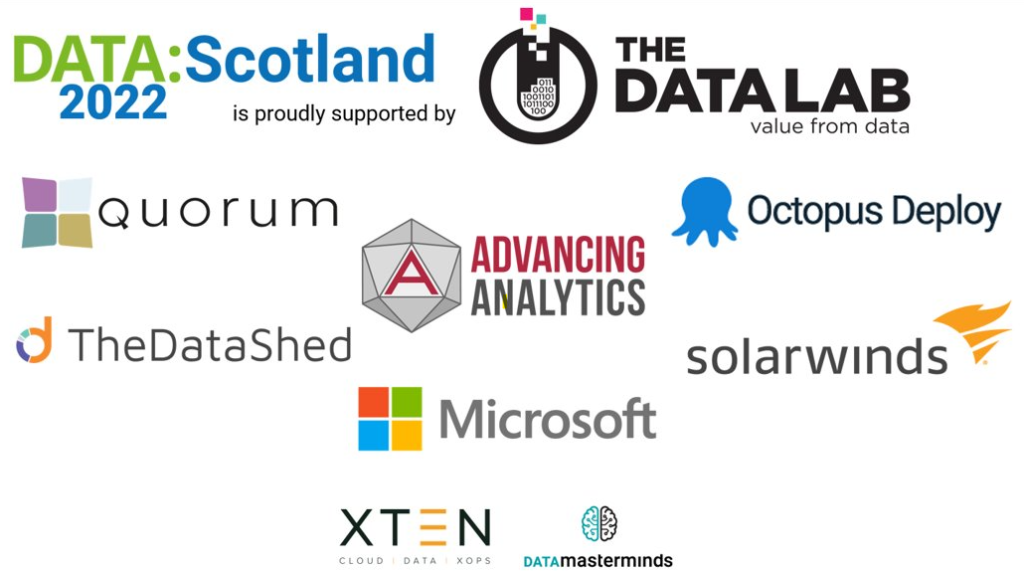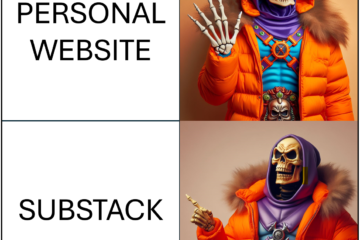So I’m back home from another jam packed data conference, having spent the last few days up in Glasgow at DATA:Scotand – for me this time though, my attendance came with a twist as I worked at the conference as a volunteer.
The Conference
The event itself is an annual one-day event that’s free to attend – though you do still need to register for a ticket. The day itself consisted of 7 sessions with 7 tracks, so there were 49 sessions available, covering a range of data topics including integration, visualisation, governance and professional development.
Included this year was also a day of in-depth pre-cons, and whilst the pre-cons did require a fee, at £300 it’s still great value considering the quality of content. This year there were 3 available sessions; A Day of Delta Lakehouse with Si Whiteley, Azure Data Integration Pipelines with Paul Andrew and Deploying all your Azure Data resources robustly and reliably with Bicep with Ben Weissman and Rob Sewell.
Given the main day is free, if you’re local to Glasgow it feels like an absolute no brainer to attend if you’re working in data, but I also know people who travelled further afield to attend. Special mention needs to go to the sponsors of the event, without whom it wouldn’t have been possible to hire such a good venue (the University of Strathclyde Technology and Innovation Centre) or put on free catering for such a large audience.

The Volunteering Experience
This is the first time I’ve worked as a volunteer at a data event, and I thought it would be good to run through the experience.
For me things started a few weeks earlier, with an online pre-meeting for all of the volunteers, with a chance for people to introduce themselves and be given a brief overview of what would be expected on the day.
I think it’s worth pointing out that working an event like this as a volunteer does not prevent you from still experiencing the learning benefits of attending. We were asked by organisers to provide the top 3 sessions we wanted to attend, with a promise that as much as possible, the volunteer rota would be tailored so that people could either attend those sessions on their breaks or at worst, be the moderator during those sessions.
Day One
Having travelled up to Glasgow the night before, my pre-con day started at 8am at the venue. After a quick wardrobe change to adorn my bright blue volunteer t-shirt, my first task was to attach lanyards to the delegates passes and lay them out ready for arrival as well as erecting some banners in the conference rooms.
Once people had arrived, my main task was to sit in on Paul Andrew’s Data Integration session. This was not a particularly onerous task. I needed to make sure I was on hand in case the speaker needed any assistance (…as a seasoned pro, he needed very little) so for the most part I could sit back and take in the training day. My “shift” from 9am until 4:30 only really needed a couple actions on my part; checking if there was separate wi-fi for speakers v attendees, asking how to turn up the heating in the room and retrieving a bottle of water for the speaker.
Day Two
Day 2 had an earlier start at 7:30 and was a much busier day (I think there were around 400 attendees) and there was much more to do. Most of my morning was spent on the registration desk, so involved taking attendees names, finding their pass for the day and giving them a warm welcome to the conference, as well as being on hand to answer any general questions (mostly people asking for directions to toilets or conference rooms).
My first taste of being a session moderator was just before lunch. The title “moderator” makes me chuckle, as it sounds so grandiose. The responsibilities are pretty basic and included checking the room before the session (there were at least 10 minutes available for change over between sessions), making sure there was water there for the speakers, clearing any litter left from the previous session, checking that the speaker is able to set up without any tech problems (and going and retrieving the tech support folks if there was an issue) and then once the session begins, doing a headcount of attendees (presumably so organisers can gauge which types of session were most popular). You also act as the timekeeper for the speaker, with cards to hold up and prompt them with 15, 10 and 5 minute warnings so they know the end of their 50 minute session is looming.
So apart from the 10 minutes to set up at the beginning and 15 minutes of being time conscious near the end, the rest of the time you can still take in the content being delivered. I was lucky enough to sit in on sessions delivered by Rob Sewell, Benni De Jagere, Scott Helmers and a very entertaining triple threat session done by Mathias Halkjaer, Brian Bønk and Si Whiteley.
The end of the day needed a bit of time breaking down some of the conference paraphernalia, like banners and flags, but split between a team of 15 or so volunteers this was only a 10 minute task.
So my last responsibility was to enjoy a well deserved beer at the conference after party with some new found volunteer friends.
Shout out to the organisers
Not going to lie, the experience was pretty tiring, with some long days and a lot of time on my feet. But also, the thought the organisers put in to supporting the volunteers made it all really straight forward.
There was a schedule so that all volunteers knew where and when we needed to be and we also stayed in touch throughout the day via a WhatsApp group. Even when there were last minute changes in either the conference schedule or to the volunteer schedule it was all dealt with calmly and smoothly. I’ve volunteered at music festivals and beer festivals in the past, and this was by far the smoothest experience I’ve had, so thanks to the organisers for making it such an enjoyable experience.
Why you should volunteer
Which leads me to why I wanted to volunteer in the first place. Although my online alter-ego of “Greyskull Analytics” has only existed for around 18 months, I’ve been attending data community events for at least 6 years. Through these events I’ve learned so much and they’ve certainly helped me progress with my career. They’re also really enjoyable occasions and I’m lucky to say that I’ve made so many new friends and acquaintances via these events too.
The reality is that none of these events can happen without volunteers.
Without people willing to give up their time to help, the events can’t be a success, and if that were to happen, the events will likely dry up. So in the interests of sustaining these great opportunities, and keeping the community healthy and thriving, I’d really encourage people to get involved. It’s a really fulfilling experience and you still get plenty of chances to take advantage of the learning opportunities available at the event, as well as giving something back to the data community. So give it some thought. Maybe you can be an extra pair of hands at a local user group or maybe you could be a member of the orange army at SQLBits or the blue brigade at DATA:Scotland.

0 Comments